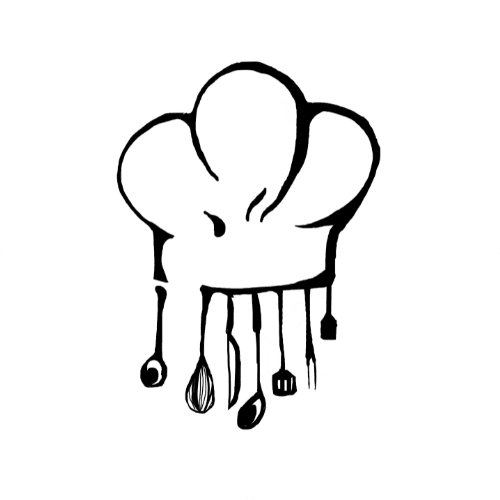Restaurants continue adjusting to rising costs

Posted on December 6th, 2022
From beef and bread to frying oil and produce, food costs have hit Charleston restaurants and providers across the board, resulting in a lot of private reassessments.
Increased food costs, supply issues and rising gas prices over the past two years have made trips to the grocery store considerably more expensive, according to multiple media reports.
But the average grocery store consumers aren’t the only ones being hit with increases. Restaurants have been affected, although diners may not notice at many establishments thanks to behind-the-scenes work many restaurateurs and managers do to avoid passing on costs.
“I was talking to one of the guys at U.S. Foods about the industry, and he told me that inflation had gone up 11.8% and the majority of restaurant owners only increased their prices 7.5%,” said Mike Petrillo, chef at Cabana Burgers & Shakes in Mount Pleasant. Petrillo added he had done the math at Cabana Burgers and prices on his end totaled to about a 7.5% increase.
According to Queen Street Hospitality CEO Jonathan Kish, some items like beef have seen a steady decrease in the past year, but other items like berries and avocados are starting to see another price jump.
“In 2020 and 2021, we saw a rapid increase [in beef prices],” said Kish, whose company runs 82 Queen, Jalisco and Florence’s Lowcountry Kitchen (before its recent closure). “Now we’re getting back to normal prices before Covid … [but] produce costs are still kind of a super-volatile, nutsy market right now, especially with things like the California heat wave.”
Before the pandemic, he added, a case of avocados (around 48-60 per case) was $40, but up until about two weeks ago, case prices were nearly $105. Prices have steadied at about $60 today.
For Petrillo, soybean oil and chicken have impacted Cabana Burgers the most. Jugs of oil, he said, used to be $18 to $21, but have increased to nearly $52 and chicken prices shot up more than 400%.
More than food
It’s not just food costs increasing, either, according to Ken Schneider, who owns Uncork in downtown Charleston, in addition to several other businesses including a pasta facility in Chicago. Transportation and added fees have become part of the trade.
“Everyone’s now adding a surcharge for delivery,” he said. “That’s on top of the cost of stuff. I used to get free delivery on stuff that I don’t get anymore. It doesn’t sound like a lot, but if everybody charged me $10 and I get five deliveries a day, five days a week, that’s $250 extra a week.”
Credit card fees have also become an increased business cost. Petrillo said he’s paid thousands in credit card fees alone. And some restaurants, according to Petrillo and Ted Dombrowski of Ted’s Butcherblock in Charleston, have passed on credit card processing fees to customer to help offset costs.
“Unfortunately, there have been many [places] that have been adding service charges in this area,” Petrillo said, adding that the service fee didn’t work out too well with the community.
“Passing on the cost of doing business is now a normal thing,” Dombrowski said. “People have been telling me, ‘You’re crazy. You’re losing tens of thousands of dollars [on credit card fees].’ Well yeah, I don’t want to insult my customers.”
Offering alternatives
To avoid passing on a price increase to customers, some like Dombrowski say they do their best to offer alternatives. For example, when Ted’s Butcherblock had to raise the price of tenderloin, Dombrowski would offer teres major, the second most tender cut of beef and half the price of tenderloin.
“I kind of felt it [was] my job to educate people,” he added. “Here’s a time to go look outside the box of the normal things you get and open it up to some more affordable things.”
Restaurants like Uncork have undergone recent bread distributor changes due to possible increased prices of flour and eggs, according to Schneider. Uncork switched local bread distributors due to the unexpected increase.
Schneider has also implemented different delivery methods to avoid costs. For the pasta company that supplies Uncork, shipping previously cost about $1 a pound, but has risen to $5. To avoid passing on this increase, Schneider realized that for a $350 flight, it was much cheaper to pick up the product themselves. His partner Natasha Cline, operator of Uncork, can fly to Chicago with two bags and come back with just under 100 pounds of pasta, he said.
Places like 82 Queen had to reassess its entire menu last year to avoid passing on increases to customers, Kish said. Items like the cook-to-order steaks were taken off the menu, while current produce, such as romaine, tomatoes and berries, are closely watched “based on what’s going to happen in California,” Kish said.
“I’ve never, in my history as a restaurateur, changed my menu so much as I have these past two years,” he added. “Initially, it was the availability of products, like, ‘Could we get it or could we not get it?’ That’s still an issue that persists a little bit today, but now it’s, ‘How much will that product cost?’”
Original article: Restaurants continue adjusting to rising costs
Book your FREE Consultation TODAY
CONTACT US
Let us know the best way to reach you, and we will be in touch.
